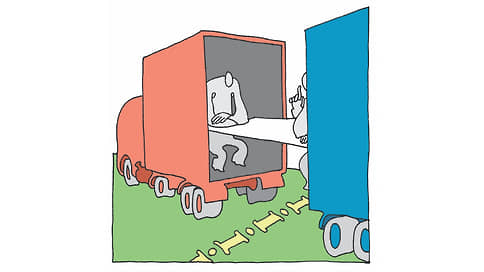Russia and Belarus agreed to abolish the system of permits for trucking to third countries
[ad_1]

Russia and Belarus have agreed to gradually abolish the system of permits for trucking to third countries. Belarusian carriers will not need permission to operate on the Russian market and vice versa. Transit traffic to third countries will eventually become not three-way, but two-way. According to market participants, the agreement will reduce prices, while it is more profitable for Belarusian carriers, as they gain access to a larger market.
On August 18, the governments of the Russian Federation and Belarus signed an agreement on international road transport. Now, according to the Ministry of Transport of the Russian Federation, transportation between states does not require obtaining permits, except for the transportation of goods to and from third countries. “The agreement provides for the gradual abolition of the licensing system, which concerns the international road transport of goods to or from third countries,” they explained, adding that the abolition will be carried out in stages until 2030, starting from January 1, 2024. According to the Ministry of Transport of Belarus, the implementation of the agreement will make it possible to carry out cabotage road transport of goods across the territory of Russia, and by 2030 to gradually move to a full permit-free system for international road transport of goods.
The decision is logical and has been brewing for more than a year, says Evgeny Dyatlov, head of the procurement department for international transportation at FM Logistic in Russia.
“At the moment, when delivering goods to Russian carriers, the system of third countries no longer works, in the current realities this will not globally affect the situation on the international transportation market,” he believes. European carriers are closed entry to the Republic of Belarus and Russia. In the event of the mutual cancellation of restrictive measures by the EU, Russia and Belarus, the main deterrent will be completely different criteria – the number of transit permits.”
President of the customs and logistics broker KBT Yulia Shlenskaya believes that the purpose of this bill is to increase the “competitive position of both our and Belarusian road carriers relative to foreign ones.” Accordingly, she believes, the result should be a reduction in the cost of transportation by Russian and Belarusian carriers relative to the Poles and the Baltic states, an increase in the number of orders, and an increase in the volume of road transport. Julia Sula, head of the development of the partner network of the VIG Trans car assembly service, believes that in the current situation, this measure will maximize the provision of cargo traffic along the routes necessary for Russia and Belarus, eliminate the shortage of transport in the designated areas and, as a result, will not allow an increase in the cost of transportation. Novelco operations specialist Sergey Trukshin also says that one can hope for some reduction in the cost of transportation due to the greater number of proposals.
The agreement will not negatively affect the Russian fleet, Yulia Sula notes, since even now Russia and Belarus are quoting each other a sufficient number of permits for transportation to third countries, and the transition will take place smoothly within six years. As for the growing demand for auto delivery from China and the countries of Central Asia, here, according to Yevgeny Dyatlov, the positions of Belarusian carriers can potentially strengthen, but only slightly.
In turn, Sanjar Ashuraliev, CEO of the transport company Delko, believes that this measure will certainly have a significant impact on the competitive position of Russian carriers, since it will open a new market for Belarusian transport companies, while the new direction will not be so attractive for domestic carriers.
“This is due to the fact that the countries have a big difference in the volume of cargo turnover: according to Rosstat, in 2022, the cargo turnover of transport in Russia amounted to 5.5 trillion ton-km, while, according to Belstat, in Belarus it was only 88.6 billion ton-km. km,” he says. As a result, the number of Belarusian carriers in the Russian Federation will increase, Mr. Ashuraliev believes, and they may start cutting rates not only for international transportation, but also in the domestic market. “For Russian carriers, the prospect is less attractive, since the cargo turnover in Belarus is relatively small, and local companies can easily provide it,” he says. No”. For example, he explains, at the moment the transportation of Russia-Turkey for Belarus is already considered transportation to a third country, and for Russia, respectively, bilateral.
[ad_2]
Source link





